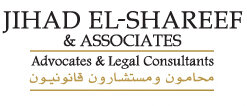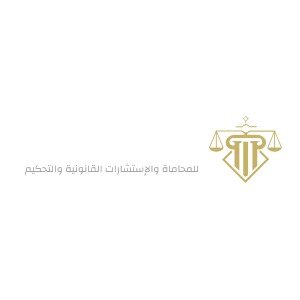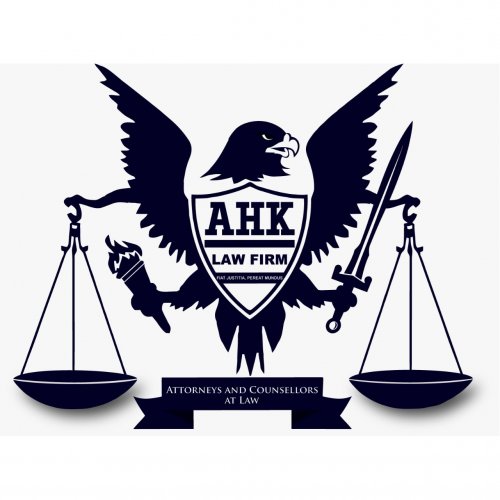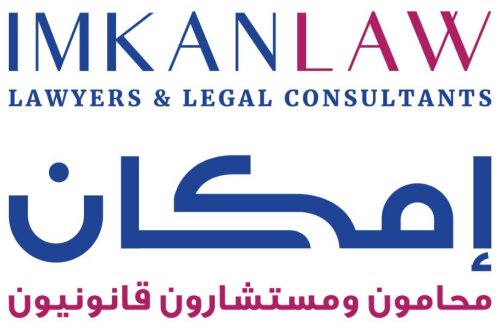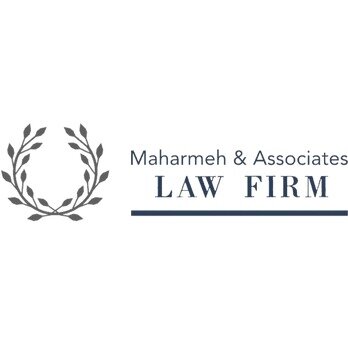Best Funds & Asset Management Lawyers in Hashemite Kingdom of Jordan
Share your needs with us, get contacted by law firms.
Free. Takes 2 min.
Or refine your search by selecting a city:
List of the best lawyers in Hashemite Kingdom of Jordan
About Funds & Asset Management Law in Hashemite Kingdom of Jordan
Funds and asset management refers to the professional administration and supervision of investments and financial assets on behalf of clients, which may include individuals, corporations, and institutions. In the Hashemite Kingdom of Jordan, this sector is regulated by a combination of national financial laws, securities legislation, and guidance issued by supervisory bodies such as the Jordan Securities Commission (JSC). The purpose of these laws and regulations is to ensure the security of investor interests, maintain the integrity of financial markets, and promote the growth of the asset management industry in Jordan.
The Jordanian funds and asset management landscape has expanded in recent years, offering a range of investment vehicles such as mutual funds, unit trusts, and private equity funds. Foreign investors also participate in this market, subject to compliance with local regulations designed to protect the economy and the interests of Jordanian investors.
Why You May Need a Lawyer
Funds and asset management can be complex, and there are many situations where consulting a lawyer is beneficial or even necessary. Common scenarios include:
- Establishing a new investment fund or asset management company and ensuring regulatory compliance
- Understanding the licensing and operational requirements imposed by the JSC
- Drafting and reviewing fund offering documents, prospectuses, and investment management contracts
- Structuring investments to meet local legal and tax requirements
- Dealing with disputes between investors and fund managers or among co-investors
- Ensuring compliance with anti-money laundering (AML) regulations and investor protection mandates
- Advice on cross-border investments and foreign ownership limitations
- Responding to regulatory investigations or enforcement actions
Local Laws Overview
Jordan’s funds and asset management sector is shaped by several key statutes and regulatory frameworks:
- Jordan Securities Law: This law provides the legal basis for the offering, sale, and management of securities in Jordan. It governs the creation and operation of investment funds and asset management companies.
- Regulations Issued by the Jordan Securities Commission (JSC): The JSC issues licensing, disclosure, and reporting requirements for fund managers and asset management firms. It also monitors compliance and has enforcement powers.
- Fund Formation and Operation: Funds must be structured according to detailed regulatory requirements, including minimum capital thresholds, governance standards, and transparency obligations regarding fund performance and investment strategies.
- Investor Protection: Laws require clear disclosures to investors regarding risks, fees, and conflicts of interest. There are also requirements to safeguard client assets and segregate them from the fund manager's assets.
- Anti-Money Laundering (AML) and Counter-Terrorism Financing (CTF): Strict AML and CTF measures require client verification, record-keeping, and reporting of suspicious transactions.
- Foreign Participation Limits: While Jordan generally encourages foreign investment, there may be restrictions or conditions for non-Jordanian investors or fund managers, so legal advice is critical for cross-border investment structures.
Frequently Asked Questions
What is the role of the Jordan Securities Commission (JSC) in asset management?
The JSC regulates, supervises, and develops the capital market in Jordan, including funds and asset management firms. It ensures that market participants comply with relevant laws and regulations designed to promote transparency, investor protection, and financial market integrity.
Can foreign investors establish or invest in funds in Jordan?
Yes, foreign investors can generally participate in funds or establish asset management firms in Jordan, but there may be specific requirements or limitations related to foreign ownership, operational structure, and licensing.
What steps are involved in creating an investment fund in Jordan?
Establishing an investment fund typically involves drafting a prospectus, obtaining appropriate licenses from the JSC, meeting minimum capital requirements, appointing qualified management, and adhering to ongoing compliance and reporting obligations.
Are there specific licensing requirements for fund managers?
Yes, fund managers must be licensed by the JSC. They must meet criteria related to experience, qualifications, capital adequacy, and operational procedures to ensure proper management of investor assets.
What obligations do fund managers have towards investors?
Fund managers must act in the best interests of their investors by providing clear disclosures, managing assets prudently, avoiding conflicts of interest, and keeping investor funds separate from their own assets.
How is investor protection ensured in Jordan’s asset management sector?
Investor protection is achieved through mandatory disclosures, ongoing supervision by the JSC, segregation of assets, transparent reporting, and mechanisms for addressing investor complaints and disputes.
What anti-money laundering (AML) measures apply to funds and asset managers?
All funds and managers must comply with AML regulations, including thorough customer identification, suspect transaction reporting, and maintaining adequate records to prevent illicit activities such as money laundering and terrorism financing.
Can fund managers offer investment advice without a license?
No, providing investment advice or managing funds without appropriate licensing from the JSC is prohibited and may result in fines, sanctions, or criminal liability.
What are the tax implications for funds and investors in Jordan?
Tax treatment depends on the legal structure of the fund and the residency status of investors. Generally, profits generated within funds may be taxable, and specific provisions apply to both local and foreign investors. Seeking tax advice is recommended.
How are disputes between investors and asset managers resolved?
Disputes may be resolved through negotiation, mediation, arbitration, or litigation, depending on the terms of the fund’s documents and the preferences of the parties involved. The JSC may also intervene in cases of regulatory breaches or unresolved disputes.
Additional Resources
If you need further guidance or official information, consider these resources and organizations in Jordan:
- Jordan Securities Commission (JSC)
- Central Bank of Jordan (for related financial regulations)
- Jordan Investment Commission
- Jordanian Association of Certified Public Accountants (JACPA)
- Commercial law firms and legal consultants authorized to practice in Jordan
- Chambers of Commerce and Professional Associations
Next Steps
If you are considering establishing a fund, investing in an asset management vehicle, or require advice on compliance or investor relations in Jordan, the following steps are recommended:
- Identify your specific requirements and objectives relating to funds or asset management
- Contact a lawyer or firm with expertise in Jordanian financial and securities law
- Prepare necessary documentation and information about your investment or business intentions
- Consult with regulatory bodies such as the JSC for clarification on licensing and compliance processes
- Stay informed about ongoing legal and regulatory updates in the asset management sector
Legal counsel can assist you in every stage, from strategic planning and regulatory compliance to dispute resolution and ongoing management, ensuring that your interests are protected and that all requirements under Jordanian law are met.
Lawzana helps you find the best lawyers and law firms in Hashemite Kingdom of Jordan through a curated and pre-screened list of qualified legal professionals. Our platform offers rankings and detailed profiles of attorneys and law firms, allowing you to compare based on practice areas, including Funds & Asset Management, experience, and client feedback.
Each profile includes a description of the firm's areas of practice, client reviews, team members and partners, year of establishment, spoken languages, office locations, contact information, social media presence, and any published articles or resources. Most firms on our platform speak English and are experienced in both local and international legal matters.
Get a quote from top-rated law firms in Hashemite Kingdom of Jordan — quickly, securely, and without unnecessary hassle.
Disclaimer:
The information provided on this page is for general informational purposes only and does not constitute legal advice. While we strive to ensure the accuracy and relevance of the content, legal information may change over time, and interpretations of the law can vary. You should always consult with a qualified legal professional for advice specific to your situation.
We disclaim all liability for actions taken or not taken based on the content of this page. If you believe any information is incorrect or outdated, please contact us, and we will review and update it where appropriate.
Browse funds & asset management law firms by city in Hashemite Kingdom of Jordan
Refine your search by selecting a city.




